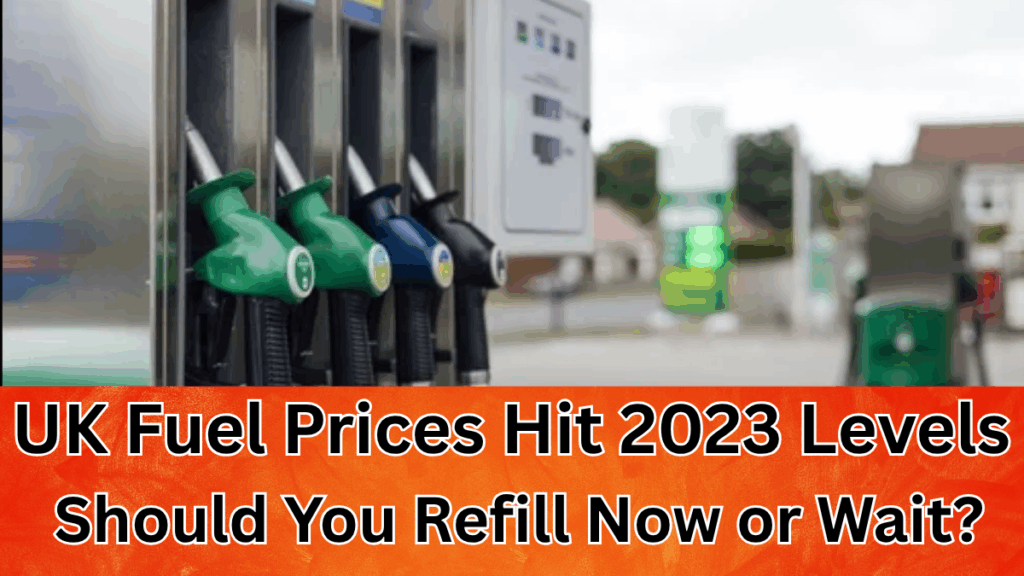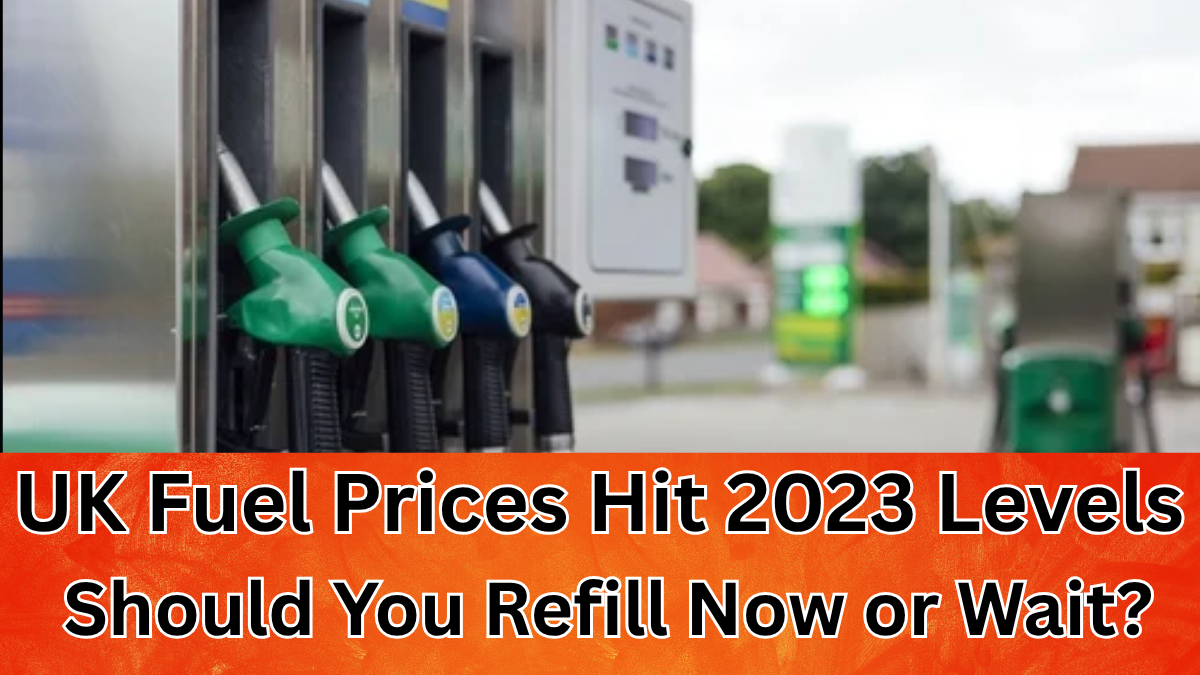Fuel prices in the UK have recently fallen back to levels we last saw in 2023, creating quite a buzz among drivers and commuters. If you’ve been holding off on refilling your tank, you’re probably wondering: Is now the best time to refill? Or should you wait a little longer for prices to drop further? Let’s break down the situation to help you make a smart choice.

What’s Happening with UK Fuel Prices?
In recent weeks, the UK fuel price drop has been noticeable, bringing petrol cost UK closer to last year’s average. This shift is good news for many, especially with the cost of living continuing to rise in other areas.
-
Average petrol prices have dipped by around 5-8% compared to the previous months.
-
Diesel prices have also softened slightly but remain higher than petrol.
-
Factors influencing prices include global oil trends, seasonal demand, and government policies.
Should You Refill Your Tank Now? The Pros and Cons
Deciding the best time to refill depends on a few key points. Here’s a quick look at the advantages and drawbacks of filling up now versus waiting:
| Refill Now | Wait to Refill |
|---|---|
| Lock in current lower prices | Potential for even cheaper fuel |
| Avoid price spikes from seasonal demand | Risk of prices increasing again |
| Immediate savings on current trips | Save money if prices continue falling |
| Peace of mind for long journeys | Possible inconvenience if price spikes |
Fuel-Saving Tips to Stretch Your Budget Further
Whether you choose to fill now or later, adopting some fuel-saving tips can help make your petrol last longer and reduce overall costs.
-
Drive smoothly: Avoid harsh acceleration and braking.
-
Keep your tires properly inflated: This can improve fuel efficiency by up to 3%.
-
Limit idling: Turn off your engine if you expect to be stopped for more than a minute.
-
Lighten your load: Extra weight in your car reduces fuel economy.
-
Use cruise control: Especially on highways, to maintain a steady speed.
Understanding Petrol Cost UK Trends in 2025
The petrol market is influenced by many moving parts. Here are some trends to keep an eye on:
-
Global oil supply stability: Conflicts or agreements among oil-producing countries can sway prices.
-
Seasonal demand spikes: Summer months usually mean higher fuel consumption.
-
Government levies and taxes: Changes in fuel duty or environmental taxes directly affect prices.
-
Renewable energy push: Growing adoption of electric vehicles and alternative fuels could impact petrol demand long-term.
Quick Summary: Should You Refill Now?
-
The UK fuel price drop brings petrol prices close to last year’s levels, making it a favorable time for many to refill.
-
If you need to drive soon, refilling now can protect you against future price increases.
-
If your tank is half-full or more, waiting a week or two could save you a little extra if prices continue to dip.
-
Incorporate fuel-saving tips to get the most out of every litre, no matter when you fill up.
FAQs
Q1: When is the best time to refill petrol in the UK?
A: Generally, weekdays (especially Tuesdays and Wednesdays) tend to have lower fuel prices. Early mornings can also offer better rates before daily demand peaks.
Q2: How much has the UK fuel price dropped recently?
A: Petrol prices have dropped around 5-8% compared to earlier this year, bringing them close to 2023 levels.
Q3: Will petrol cost UK prices continue to fall?
A: Prices fluctuate due to various factors, including global supply, demand, and government policy. While prices might dip further short-term, they can rise again depending on external events.
Q4: What are some simple fuel-saving tips I can use?
A: Drive smoothly, avoid idling, keep tires inflated, reduce extra weight, and use cruise control on highways to save fuel.
Click here to learn more
